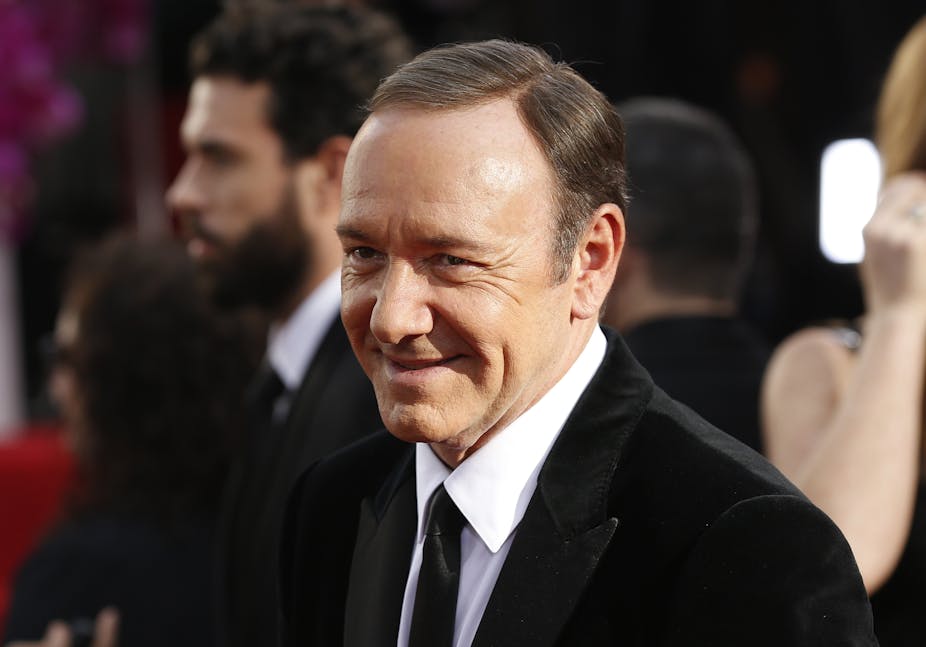More than 20 years after his death, Dennis Potter arguably remains Britain’s most distinguished television writer, with a string of landmark TV dramas to his name. He is probably best remembered for characters lip-synching to popular songs, which he used to such memorable effect in Pennies from Heaven (1978) and The Singing Detective (1986); together with adult actors playing children in Blue Remembered Hills (1979).
But Potter first made his name 50 years ago this month with The Nigel Barton Plays – a pair of semi-autobiographical dramas initially transmitted as part of the BBC’s groundbreaking Wednesday Play series. They sealed his reputation as an exciting new TV playwright and went on to win him many awards. Still very much remembered today - the BBC recently re-released them as part of a comprehensive Dennis Potter Collection - the plays continue to speak to current audiences about our own political times.
They revolve around the ambitious and idealistic Nigel Barton, prospective Labour candidate and comic fictional alter ego of Potter. Played by Keith Barron, we first see him in Stand Up, Nigel Barton, which was originally shown on December 8, 1965. Flashbacks to Barton’s time as the cleverest boy at school are juxtaposed with his fish-out-of-water status as a working-class undergraduate at Oxford University in the early 1960s. The schoolroom scenes are notable for being the first time Potter deployed his adult actors as children device.
Yet the second play, Vote, Vote, Vote for Nigel Barton, is the one that really speaks to us today. Transmitted a week after the first on December 15, 1965, it is a thinly disguised account of Potter’s experiences as a Labour candidate in the 1964 general election, fighting the hopelessly unwinnable Conservative seat of East Hertfordshire (changed in the play to West Barset).

The play’s enduring appeal owes much to Jack Hay, Barton’s political agent (played wonderfully by John Bailey). As Barton wanly goes around West Barset trying to woo uninterested voters, Hay turns to camera, breaking the fourth wall to give the audience a series of increasingly cynical asides on the whole futility of the conventional political process. He makes us fellow conspirators, confessing to us there is “a lot of good” in the young idealistic socialist candidate, but “you wouldn’t vote for a Nigel Barton in a million years”. Instead all that matters is to appeal to the floating voter, with “his house, his car, his 2.8 children”.
Screenwriter Andrew Davies famously went on to use the same device when he adapted Michael Dobbs’ House of Cards novel for BBC TV in 1990 – and so does the highly successful American remake starring Kevin Spacey. When Spacey as Frank Underwood turns to camera to give us his latest jaundiced view on Capitol Hill, he is within a political TV drama tradition that stretches all the way back to Vote, Vote, Vote for Nigel Barton.
The grubby truth
At the heart of Vote, Vote, Vote is the theme that, to quote Potter at the time, “party politics has almost ceased to be about real issues”. As Nigel Barton’s campaign wears on, the dirty reality of modern vote-catching is made worse by his wife, “Hampstead socialist” Ann (played by Valerie Gearon). She chides him that sooner or later all Labour leaders end up compromising their socialist ideals and kissing the “white-gloved hand”. It is an image which leaps 50 years to Jeremy Corbyn’s alleged recent dilemma of whether to kiss the Queen’s hand when he joined the Privy Council.

Barton’s dilemma is that while it would be easy to be like Ann and retain the “purity” of one’s socialist ideals by refusing to run for office, how on earth would anything change? Surely one has to get out into the world to achieve change, but what if that world has no interest in prosperity for all, or even prefers the polar opposite?
Canvassing on doorsteps, Barton is horrified to be asked by one lady: “What are you going to do about the blacks?” This actually happened to Potter when he was campaigning in 1964. When he tried to argue with the voter, he received a sharp kick in the ankles from his election agent. He later recounted that this was when he realised he “was in the wrong trade”. You can easily imagine a Labour candidate today facing similar questions about immigration from traditional core voters with UKIP sympathies.
“Compromise, compromise – that’s the way for you to rise”, Ann teases her husband in the play. Labour has arguably had the same problem throughout its postwar history. You can make some kind of Blairite accommodation with the forces of capital, but at what point do you end up compromising too much? Or do you stick to your socialist ideals and risk speaking only to the grassroots, ignoring those floating voters with their “house, car and 2.8 children”?
Once Corbyn and the Labour party of today have made up their minds, they can let us know.

